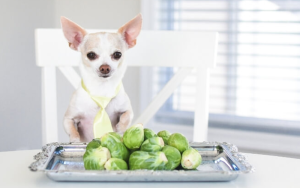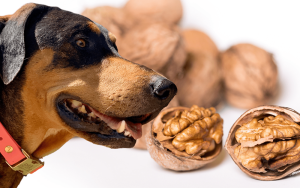Can dogs eat mushrooms?

As dog owners, we are constantly vigilant about what we feed our furry friends. The question of whether dogs can eat mushrooms is one that often arises, and it’s a topic that demands careful consideration. Mushrooms come in a vast array of species, with
some being perfectly safe and even nutritious for humans, while others can be extremely toxic. But what about for our canine companions?
To start, it’s important to understand that dogs have different digestive systems compared to humans. Their bodies have evolved to process certain types of foods more efficiently, and mushrooms are not a typical part of their natural diet. In the wild,
dogs are primarily carnivores, although they do have some omnivorous tendencies. But this doesn’t mean they can safely consume all that we might eat.
The short answer to whether dogs can eat mushrooms is that it depends. There are a few mushrooms that are generally considered safe in small quantities. For example, the common button mushroom (Agaricus bisporus), which is a staple in many human diets,
can usually be given to dogs in moderation. These mushrooms are low in calories and can provide some nutrients like vitamins B and D, as well as minerals such as potassium. However, they should always be cooked and served plain, without any added
seasonings, oils, or spices that could upset a dog’s stomach.
Another relatively safe option is the Portobello mushroom, which is essentially a mature form of the button mushroom. It has a meatier texture and can be a good source of dietary fiber for dogs. Again, proper preparation is key. It should be cooked thoroughly
to make it easier for the dog to digest and to kill off any potential bacteria.
On the other hand, there is a long list of wild mushrooms that are highly toxic to dogs. Amanita phalloides, commonly known as the death cap mushroom, is one of the most dangerous. Just a small amount of this mushroom can cause severe liver and kidney
damage in dogs, and it often has a fatal outcome. Symptoms of poisoning from the death cap can include vomiting, diarrhea, lethargy, jaundice (a yellowing of the gums and eyes), and in later stages, seizures and coma.
The destroying angel mushroom (Amanita bisporigera and related species) is equally as deadly. It contains toxins that attack the dog’s internal organs, leading to rapid deterioration of health. Even if a dog appears to recover initially after ingesting
a toxic mushroom, it’s crucial to seek veterinary care immediately as the full effects of the poison may not be evident right away.
There are also mushrooms like the fly agaric (Amanita muscaria), which, while not always immediately lethal, can cause a range of unpleasant symptoms. These can include hallucinations, disorientation, excessive drooling, and vomiting. The toxins in these
mushrooms can disrupt the dog’s nervous system and cause significant distress.
It’s not just wild mushrooms that pose a risk. Some store-bought mushrooms that have been improperly stored or have started to spoil can also be harmful. Moldy mushrooms, in particular, can contain mycotoxins that can make a dog very ill. Signs of illness
from spoiled mushrooms might include gastrointestinal upset, with symptoms like vomiting, diarrhea, and a loss of appetite.
So, how can you protect your dog from mushroom poisoning? First and foremost, it’s essential to keep your yard free of wild mushrooms. Regularly inspect your lawn and garden areas, especially after periods of rain when mushrooms tend to sprout up. If
you spot any mushrooms, remove them carefully and dispose of them in a way that your dog can’t access them again.
When you’re out on walks, be vigilant. Train your dog to have a reliable recall so that you can prevent them from sniffing around and potentially eating mushrooms they come across. If you live in an area with a lot of woodland or parks where mushrooms
are common, consider using a leash to keep your dog close and under control.
If you’re unsure about a particular mushroom, the best course of action is to err on the side of caution. Don’t let your dog eat it, and if you suspect they may have already ingested something suspicious, contact your veterinarian right away. Time is
of the essence when it comes to treating mushroom poisoning, and early intervention can greatly improve the chances of a positive outcome.
In addition to being cautious about what mushrooms your dog consumes, it’s also important to consider their overall diet. A balanced diet for a dog typically consists of high-quality commercial dog food that is formulated to meet their nutritional needs.
While the occasional treat of a safe mushroom can be okay, it should never replace their regular meals.
Some dog owners may be tempted to give their pets mushroom supplements, thinking it could provide additional health benefits. However, these should only be given under the guidance of a veterinarian. Many mushroom supplements are designed for human consumption
and may contain ingredients that are not suitable for dogs or could interact negatively with their medications.
In conclusion, the world of mushrooms and canine nutrition is a complex one. While some mushrooms can be a harmless addition to your dog’s diet in small amounts, the potential risks associated with toxic mushrooms far outweigh any potential benefits.
By being informed, keeping a watchful eye on your dog’s environment, and seeking veterinary advice when in doubt, you can help ensure your furry friend stays healthy and safe. Remember, when it comes to mushrooms and dogs, it’s always better to be
safe than sorry.






